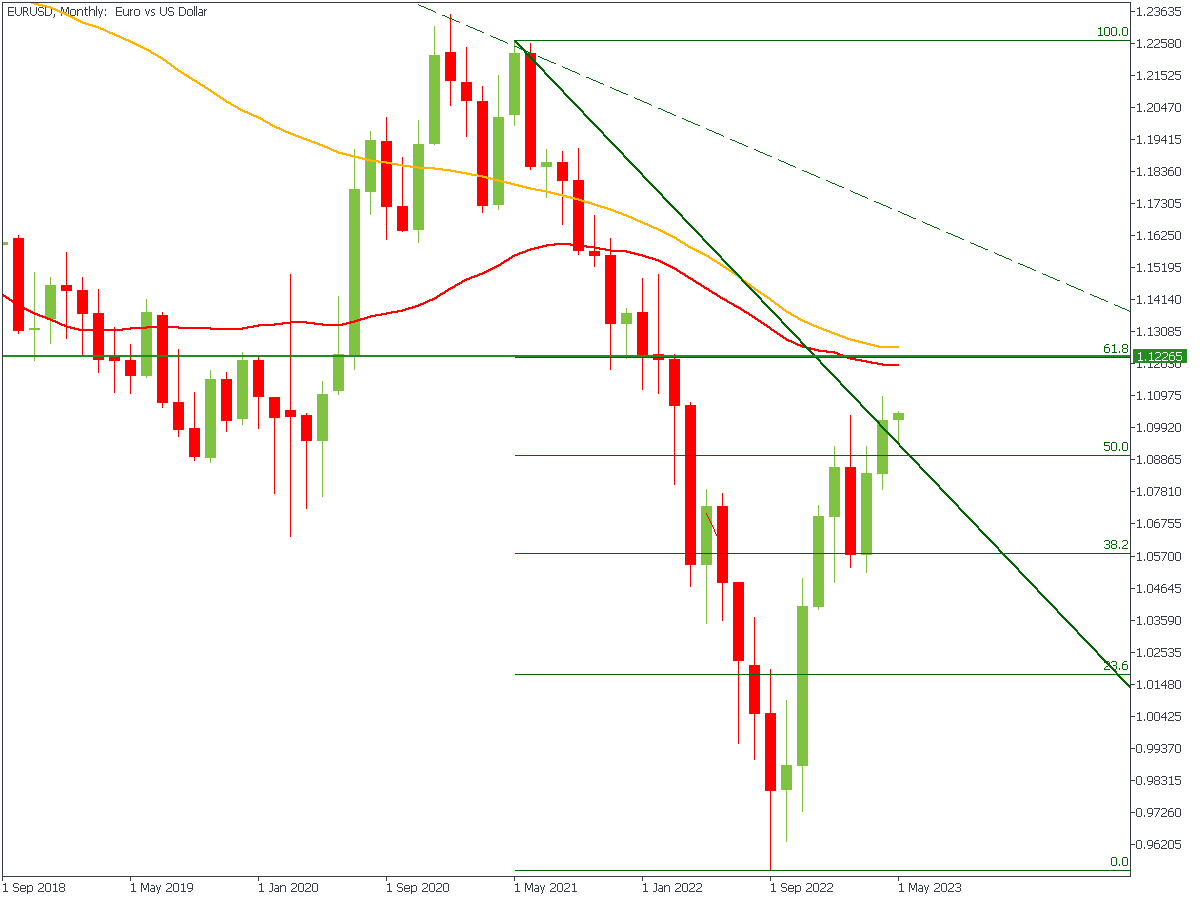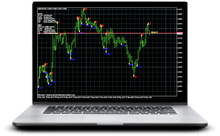Information is not investment advice
Against the background of the gradual de-dollarization of the global economic system, the question of replacing the US national currency is increasingly being raised. Some experts have already started talking about the euro as such a replacement. This is unlikely, especially in the economic and geopolitical configuration of the EU, which is now present on the world stage. What is wrong with the EU, and what fate awaits the euro? About all this in our article today.
You die today; I’ll die tomorrow.
In the novel "Gulag Archipelago" by the Russian writer Alexander Solzhenitsyn, the phrase "You die today, and I'll die tomorrow" is often encountered. It quite well describes the relationship between the "world's policeman," the United States, its world reserve currency, the dollar, and the main satellites of the United States - the countries of the European Union.
In the modern dollar-centric model of the economy, the cure for any disease (financial crisis) is to throw additional liquidity into the market.
An example of this "treatment" can be seen in the last three significant crises through which the modern economy has gone and which should be familiar to you.
The subprime crisis of 2008.
Having provoked the formation of a massive bubble in the real estate market through the uncontrolled emission of derivatives, the US increased the money supply quite dramatically (the money supply M2 "jumped" upward in early 2008 and 2009) and simultaneously began a long cycle of key rate cuts, bringing it almost to zero level.
Considering that the US is a net importer, this, in turn, triggered a gradual reduction of the key rate in the EU itself to 1% and a gradual devaluation of the Euro against the dollar (the maximum value of the EURUSD pair was reached in 2008 - 1.6038).
The lack of an alternative to the dollar led to a sharp increase in investments in US treasuries (read: US debt). Whereas before the subprime crisis, the Debt/GDP ratio did not exceed 70%, after 2009, the Debt/GDP ratio jumped to 82% and kept growing.
COVID-19 crises.
The US followed the same path but was more aggressive this time, injecting more than $4.5 trillion into the system. After the 4-year cycle of raising the rate, it was sharply lowered again. By this time, the EU economy no longer had room to maneuver in the form of a key rate. Since 2008, the EU has barely stopped its downward cycle, and the euro had devalued 16.3% against the US dollar by then.
2022 crises.
The pandemic ended no sooner than the crisis of 2022, which began with the conflict between Russia and Ukraine. This crisis uncovered rather apparent problems that could not have been focused on before but only accumulated over time. Firstly, it is a problem of cheap energy resources on which low inflation in developed economies was based, which, in turn, allowed to keep rates low and not sterilize the liquidity accumulated in the system for a long time. Secondly, China and partly India have gained strength and are now the leading players in the geopolitical arena, posing a threat to the dominance of the US and, consequently, to the supremacy of the US dollar.
The issue of survival for the US in this situation is a question of joining forces with its major allies in the EU and using their economies to ensure its sustainability. Presumably, the US is aware that "world redistribution" is already taking place and is simply trying to take the most advantageous geopolitical and economic position in the long term.
The EU and the euro can play an extremely secondary role in this situation. By their actions against one of the EU's key energy suppliers, Russia, European politicians confirmed their adherence to American market principles. Against the refusal to purchase energy from Russia, American oil companies have fully controlled the EU market, demonstrating a massive increase in profits. In 2022 the revenue of Exxon Mobil grew by more than 40%, the revenue of Chevron - by 57%, and the revenue of Shell - by almost 46%.
That's the point of the phrase, "Die today, and I'll die tomorrow."
What is wrong with the EU?
Why can't the EU and its currency challenge the US? Disregarding European politicians' geopolitical aspects and personal characteristics and focusing solely on the economic component, the answer is quite simple - the heterogeneity of the economies.
For 40 years, the EU has been so focused on expanding its borders and integration that economic issues have been left "out of the picture. At the same time, if we look at the GDP of the 27 countries of the European Union, the image is as follows:
The gap between the first EU economy (Germany) and the second (France) was about 50% in 2021. If we compare Germany, for example, with Greece, the gap is about 20 times. Germany's current debt-to-GDP ratio is 66.3%, while Greece's is 171.4%. The ratio in Spain (not the smallest economy in the EU) is 113.2%. In other words, the phrase that "the German burgher pays for everything" is not unreasonable. This is a factor.
Next, it is the US debt to the EU. Collectively, the EU holds about 1:15 of the US foreign debt. Banker Jean Paul Getty used to say that "If you owe the bank $100, that's your problem. If you owe the bank $100,000,000, it's the bank's problem." This fully applies to the US, where the EU is acting as the bank. The problem with the current crisis is that, on the one hand, the US cannot afford not to raise the key rate because inflation will accelerate. On the other hand, by raising the rate too much, the US is increasing the cost of servicing its debt, thereby increasing the budget deficit. Where to get the money to cover the deficit? Right - by issuing more treasuries and selling them to its allies.
As the economic system defragments, a gradual redistribution of the major holders of US debt will begin. The consequence will be an increase in the US debt to the EU, which should hurt EURUSD.
Technical analysis
Technically EURUSD is in a global downtrend. The trend line is heading down, and all moving averages are also falling.
The movement during the last eight months can be considered a correction. The price broke the 50% Fibo correction level and almost reached 1.2226 (61.8% of Fibo correction).
With a higher probability, the price will keep falling.

Conclusion. EURUSD outlook.
We now see two possible global scenarios, both unfavorable for EUR.
Scenario 1. Even more integration of the US and the EU.
In this scenario, it is possible to increase the borrowings of the EU countries, i.e., to further increase the European economy's dependence on the American one.
Scenario 2. The disintegration of certain EU countries. Partial disintegration of the EU.
This scenario is possible only if there is a major internal political crisis within individual countries of the European bloc and if the United States "releases" such a "rebel" from its influence. This is an unlikely path, but it is still possible in the very distant future.
Legal disclaimer: The content of this material is a marketing communication, and not independent investment advice or research. The material is provided as general market information and/or market commentary. Nothing in this material is or should be considered to be legal, financial, investment or other advice on which reliance should be placed. No opinion included in the material constitutes a recommendation by Tradestone Ltd or the author that any particular investment security, transaction or investment strategy is suitable for any specific person. All information is indicative and subject to change without notice and may be out of date at any given time. Neither Tradestone Ltd nor the author of this material shall be responsible for any loss you may incur, either directly or indirectly, arising from any investment based on any information contained herein. You should always seek independent advice suitable to your needs.


















